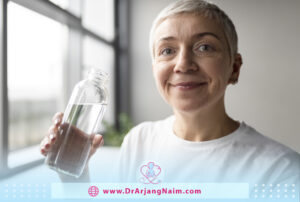A self-care woman prioritizes her physical, mental, and emotional well-being. She understands the importance of taking time for herself amidst life’s demands. Whether indulging in a soothing bath, practicing mindfulness, or maintaining a healthy lifestyle, she recognizes that nurturing herself is not selfish but essential. By carving out moments for self-reflection and self-love, she recharges her spirit, enabling her to be the best version of herself for both her benefit and those around her. Self-care isn’t a luxury for her; it’s a daily practice that empowers her to navigate life’s challenges with grace and resilience.
Why self-care is so important
Self-care is particularly important for women due to their unique societal challenges and roles. Here are several reasons why self-care is essential for women:
- Physical and Mental Well-being: Women may experience distinct physical and emotional changes throughout their lives, such as menstruation, pregnancy, menopause, and hormonal fluctuations. Self-care helps manage these changes and reduce stress, anxiety, and mood swings.
- Caregiver Roles: Women often take on caregiver roles for children, elderly family members, or loved ones with health issues. Prioritizing self-care ensures they have the energy and emotional resilience required for caregiving without burnout.
- Work-Life Balance: Balancing work and personal life can be challenging for women, especially when they are also primary breadwinners or pursuing careers. Self-care helps maintain that equilibrium, preventing professional and personal burnout.
- Societal Expectations: Women can face societal pressures and expectations related to appearance, parenting, and nurturing. Self-care promotes self-acceptance and helps women establish boundaries against external pressures.
- Mental Health: Women are more likely to experience depression and anxiety. Regular self-care practices, such as therapy, meditation, or exercise, can be crucial for maintaining mental health and seeking support when needed.
- Empowerment: Self-care empowers women to prioritize their needs and desires, fostering a sense of independence and self-worth.
- Preventative Health: Engaging in self-care activities, like regular exercise and a balanced diet, can lower the risk of various health issues, including heart disease and certain cancers.
- Stress Management: Women often face multiple stressors in their lives. Self-care techniques like relaxation exercises can help manage and reduce stress levels.
- Role Modeling: Practicing self-care sets a positive example for future generations of women, encouraging them to prioritize their well-being and mental health.
Basic self-care tips
Self-care is an ongoing commitment to nurturing your physical, mental, and emotional health, allowing you to lead a fulfilling life.

Get plenty of good sleep
Getting enough quality sleep is essential because it can affect every aspect of your mental and physical health. Chronic sleep deprivation can increase the risk of various health problems, including diabetes, heart disease, weight gain, high blood pressure, stroke, and depression.
Women, in particular, are more likely to experience insomnia and other sleep disorders due to hormone changes during the menstrual cycle, pregnancy, or menopause. Lack of sleep can also disrupt the hormonal processes that trigger ovulation, affecting fertility.
In addition, studies have shown that insufficient sleep can affect the immune system and reduce the ability to fight infectious diseases. During sleep, the body secretes protective proteins called cytokines that help fight infection and inflammation. Lack of sleep reduces the production of these proteins in the body and increases the possibility of getting sick if exposed to certain viruses.

Eat a healthy, colorful diet
Although women generally have a higher life expectancy than men, they face higher rates of debilitating diseases, including macular degeneration, autoimmune diseases, and dementia during their lifetime. This may be partly due to longer life. However, studies show that women can reduce their risk of heart disease by eating the right foods, including plenty of lean protein, whole grains, low-fat dairy products, and a wide variety of brightly colored fruits and vegetables.
Fruits and vegetables such as potatoes, kale, spinach, watermelon, bell peppers, tomatoes, oranges, and carrots are rich in pigmented carotenoids (beneficial antioxidants that can protect against disease, vision loss, and cognitive prevention and strengthen your immune system). Women require significantly more carotenoids than men for optimal health.
Along with carotenoids, colorful fruits and vegetables also contain many other vitamins and nutrients you need to stay healthy. In particular, dark green vegetables such as broccoli, Brussels sprouts, kale, and some beans and legumes, contain folic acid, an essential nutrient for reducing the risk of birth defects.

Walk, run, or stretch
Regardless of age or fitness level, regular exercise is essential for everyone. It can reduce the risk of heart disease and diabetes, improve cognitive function, and prevent or reduce bone loss in older people.
Sports play an important role in a woman’s life. At every stage, from puberty to adulthood and pregnancy to middle age and menopause, staying fit and active can ease women through this transition in unique ways.
Exercise releases natural pain relievers called endorphins, which can help relieve menstrual pain during the reproductive years. Women with natural pregnancies are encouraged to participate in physician-approved exercises to minimize the risk of cesarean section, gestational diabetes, and high blood pressure. Staying fit during labor also helps reduce the risk of postpartum depression.
While moderate exercise may increase fertility, it is important to note that vigorous exercise may inhibit ovulation. Being underweight or overweight due to hormones can have the same effect.
Older women, premenopausal, menopausal, and postmenopausal, especially benefit from aerobic exercise and strength training, which can prevent or slow bone and muscle wasting. It can also delay or prevent chronic diseases and reduce the risk of falls and broken bones. If you exercise regularly, the natural endorphins released may also minimize menopausal symptoms and help you sleep better.
Get regular checkups and preventive screenings
All women, even those young and healthy, should attend annual checkups with their primary care physician and OB/GYN. Routine physical exams and age-appropriate health screenings can detect potential health concerns early and prevent them from becoming serious.
Find your stress reliever
Stress is your biggest enemy! Our lives are so busy these days that it’s important to de-stress. You can do this by watching your favorite show, listening to music, dancing, doing your favorite activities, or meditating.
Even if you are busy, take a 10–15-minute break daily and do something that relaxes you. You can walk, call someone close to you, drink a relaxing cup of coffee, or start gardening.
Practice Kegel exercises
Kegel exercises, also known as pelvic floor exercises, are designed to strengthen the pelvic floor muscles. These exercises can help improve bladder control, enhance sexual function, and support the pelvic organs.

Drink enough water
Proper hydration can do wonders for how you feel. Even mild dehydration can impair the body’s ability to function optimally. If you feel tired and distracted, drink some water. Drinking a full glass of water as soon as you wake up each morning is also a good idea, as hydration levels decrease overnight. Set a timer on your phone to remind you to drink water throughout the day and notice how your body feels when properly hydrated versus when it’s not.
Avoid smoking and drugs
Women should avoid smoking and drug use due to their significant health risks. Smoking can lead to fertility, cancer, heart disease, and respiratory problems, while drug abuse can have severe physical and mental health consequences. Furthermore, substance abuse during pregnancy can harm both the mother and the baby. Prioritizing a smoke-free and drug-free lifestyle is essential for women’s overall well-being, fertility, and long-term health.
Practice safe sex
Practicing safe sex is essential for maintaining sexual health and preventing the spread of sexually transmitted infections (STIs) and unintended pregnancies. Safe sex involves using methods such as condoms, dental dams, and regular STI testing to reduce the risk of infection. Communication with sexual partners, knowing one’s own and their partner’s sexual health status, and making informed choices are also vital components of safe sex. It helps ensure a healthy and responsible approach to sexual activity, promoting overall well-being and reducing the risk of negative consequences.
Change your pad, cup, or tampon every 4 hours
Changing your pad, cup, or tampon regularly during your period is important, so check it every time you go to the bathroom. If it looks full, change it. This helps prevent odor and infection. There is also the risk of toxic shock syndrome if you use tampons too long, so never wear a tampon for more than 8 hours and always go with the lowest absorbency you need.
The bottom line
Self-care is a process of human spiritual and physical development. But in our society, many women ignore or put their needs at the last stage. Self-care is very important for women. Studies have shown that women who pay attention to their sleep, food, and exercise experience less anxiety, depression, and heart disease and are more satisfied with their lives.
Additional questions
- What are some effective self-care strategies for managing stress and anxiety?
Strategies include deep breathing exercises, mindfulness meditation, yoga, spending time in nature, and seeking support from friends or a therapist.
- How can self-care contribute to women’s physical health and longevity?
Self-care helps reduce the risk of chronic diseases, improves immune function, and enhances overall physical health, potentially extending women’s lifespans.
- What are eight ways to manage stress?
- Slow down
- Take a break
- Make time for hobbies
- Talk about your problems
- Exercise
- Relax your muscles
- Deep breathing
- Eat well
- What is a sufficient amount of physical activity?
A sufficient amount of physical activity for adults typically involves at least 150 minutes of moderate-intensity aerobic exercise, or 75 minutes of vigorous-intensity aerobic exercise, each week, along with strength training exercises for major muscle groups on two or more days. Incorporating flexibility and balance exercises is also important, especially as individuals age. Personalized fitness plans may vary based on individual goals and physical conditions, so consulting a healthcare provider or fitness professional can help determine the most suitable exercise routine.
- How can a woman practice safe sex?
Women can practice safe sex by taking steps to protect themselves from sexually transmitted infections (STIs) and unintended pregnancies. Here are some key ways for women to engage in safe sex:
- Use condoms
- Practice regular STI testing
- Get vaccinated
- Limit sexual partners
- Practice good hygiene
- Regular health checkups
References
https://www.uhhospitals.org/blog/articles/2023/03/self-care-for-women-5-simple-steps
https://www.healthshots.com/preventive-care/self-care/7-basic-self-care-tips-for-women/
https://myfitbrain.in/blog/why-self-care-is-important-for-women
https://www.womenshealthmag.com/health/a24886599/self-care-routine-tips/
https://www.wikihow.com/Take-Good-Care-of-Yourself-(for-Girls)
https://alastin.com/blogs/intheglow/the-ultimate-guide-to-self-care-for-women




